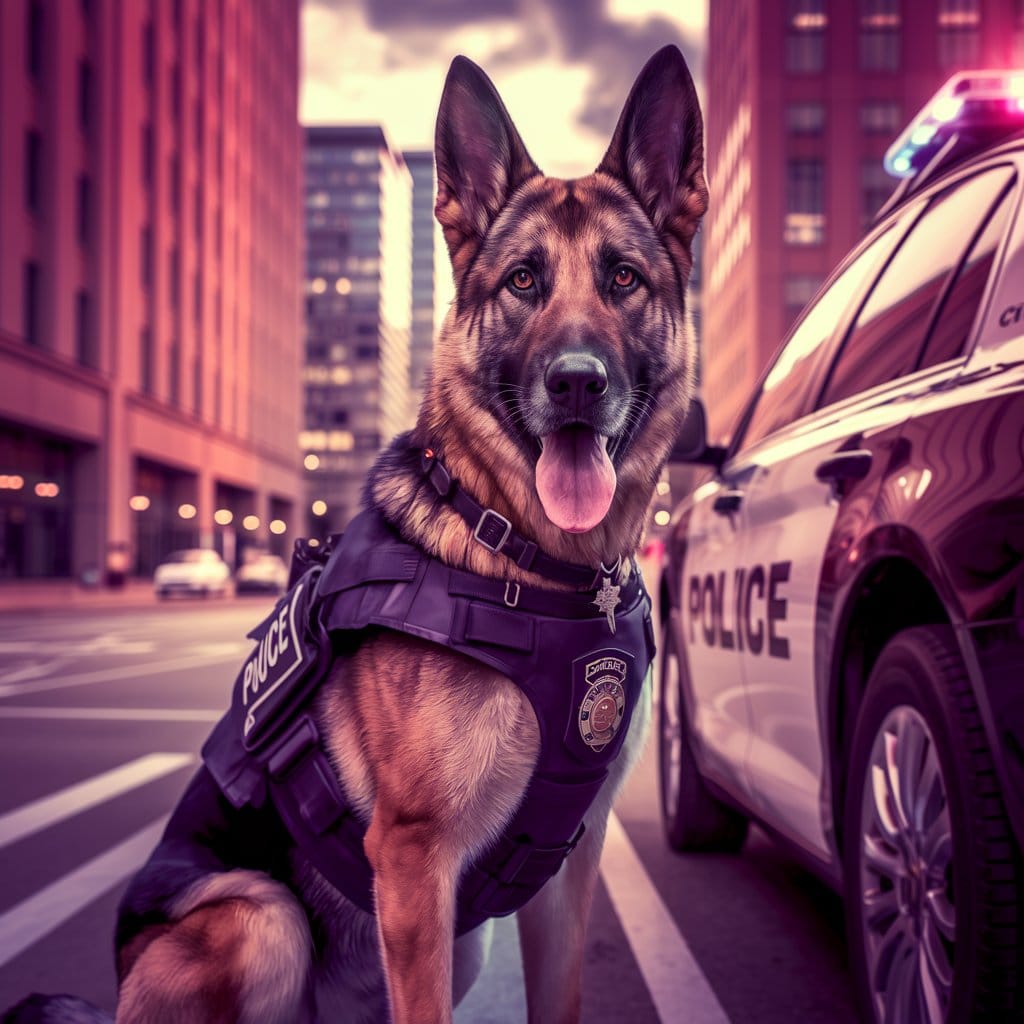Dogs can sense human emotions instinctively. They are incredibly perceptive, often picking up on subtle cues. This emotional intelligence extends to their own well-being, especially when dealing with allergies.
When our furry friends suffer from allergies, it can be distressing for both pets and owners. Apoquel for dogs has emerged as a popular solution. It offers relief from itching and discomfort. But is it the right choice for your pet?
As pet owners, we want the best for our dogs’ health. Understanding the options for dog medication is crucial. Apoquel, an FDA-approved oral medication, has gained attention for its effectiveness in treating allergic dermatitis and atopic dermatitis in adult dogs.
Let’s explore how Apoquel works, its benefits, and potential considerations. This will help you determine if it’s suitable for your dog’s allergy management. By delving into this topic, we’ll uncover valuable insights about dog health and the role of targeted medications like Apoquel in improving our pets’ quality of life.
Key Takeaways
- Apoquel is FDA-approved for managing dog allergies
- It provides fast relief from itching and inflammation
- Apoquel starts working within 4 hours
- It’s not suitable for puppies under 12 months
- Potential side effects include gastrointestinal upset
- Consult your vet before starting Apoquel treatment
- It may be used short-term or long-term based on the dog’s needs
Understanding Dog Allergies and Their Impact
Dog allergies are common and affect many pets. They can show up in different ways, like allergic dermatitis and atopic dermatitis. Let’s explore dog allergies to understand their types, symptoms, and how to manage them.
Common Types of Allergies in Dogs
Dogs can have several allergies, each with its own causes and effects. Seasonal allergies are common, followed by allergies from the home, food, and fleas. Contact allergies are rare, caused by things like pyrethrins or certain carpets.
Symptoms of Allergic Reactions in Dogs
It’s important to know the signs of dog allergies early. Common signs include:
- Excessive scratching or licking
- Red, inflamed skin
- Recurring ear infections
- Sneezing or coughing
- Watery eyes
The Importance of Proper Allergy Management
Managing dog allergies well is key to a better life for your pet. While you can’t cure dog allergies, you can control them. The right treatment can make a big difference in your pet’s comfort and health.
| Treatment Method | Success Rate | Notes |
|---|---|---|
| Hyposensitization Therapy | 75% | 50% significant improvement, 25% reduced corticosteroid use |
| Apoquel Medication | 80-85% | Positive results in most dogs with allergies |
| Allergen-specific Immunotherapy | 60% | Achieved positive results in studies |
Understanding dog allergies is the first step to a happy life for our pets. With the right knowledge and care, we can manage these allergies and help our dogs feel better.
What is Apoquel for Dogs?
Apoquel is a dog medication that fights itching and swelling in dogs. It’s approved by the FDA and contains oclacitinib. This ingredient targets the immune system’s allergic pathways.
Vets give Apoquel to dogs with allergic skin issues like flea allergies and atopic dermatitis. It comes in easy-to-give tablets and chewables.

Apoquel works fast. Dogs often feel better from itching within hours of their first dose. This quick relief can greatly improve their lives.
“Apoquel has been a game-changer for many of our patients with severe allergies. The speed at which it works is truly remarkable,” says Dr. Emily Carter, a renowned veterinary dermatologist.
It’s key to remember Apoquel is for dogs 12 months or older. This rule is to protect younger dogs from potential risks.
| Attribute | Details |
|---|---|
| Active Ingredient | Oclacitinib |
| Primary Use | Treatment of allergic dermatitis |
| Forms Available | Oral tablets, Chewable tablets |
| Minimum Age for Use | 12 months |
| Speed of Action | Within hours |
Even though Apoquel is promising for dog allergies, always talk to a vet before starting it.
How Apoquel Works to Combat Allergies
Apoquel is a groundbreaking dog allergy treatment. It targets the source of allergic reactions. Unlike traditional antihistamines or steroids, it works in a unique way.
The Science Behind Apoquel’s Mechanism
Apoquel focuses on proteins called Janus kinases. These proteins are key in starting allergic reactions. By stopping these proteins, Apoquel blocks the signals that cause itching and swelling in allergic dogs.
Targeting Specific Proteins to Reduce Itching
This medication blocks cytokines, important immune system molecules. This action reduces the release of substances like histamines. As a result, Apoquel cuts down itching and swelling at the cellular level.
Speed of Relief Compared to Other Treatments
Apoquel is known for its quick action. It starts working in just four hours. Within 24 hours, it can stop itching completely. This is faster than many other allergy treatments.
| Treatment | Onset of Action | Full Effect |
|---|---|---|
| Apoquel | 4 hours | 24 hours |
| Oral Steroids | 4-6 hours | 24-48 hours |
| Antihistamines | 1-2 hours | Variable (often less effective) |
Research proves Apoquel is as good as steroids in fighting allergic skin issues. It has fewer side effects. It’s no surprise Apoquel is the top choice for dogs with allergic itch.
When Veterinarians Prescribe Apoquel
Vets often choose Apoquel for dogs with allergies. It works well for dogs with environmental allergies who don’t get better with antihistamines. Only about 30% of dogs with environmental allergies get better with antihistamines, making Apoquel a good choice.
Apoquel starts to help itching in just 4 hours and controls it in 24 hours. Vets might use it for quick relief or long-term management. It’s often given with other treatments like omega fatty acids and topical creams.
The dosage and how long you take Apoquel can change:
- Initial treatment: Twice daily for up to 14 days
- Ongoing management: Once daily
Before prescribing Apoquel, vets consider a few things:
| Consideration | Details |
|---|---|
| Age | Not for dogs under 12 months |
| Weight | Not for dogs under 2.9 kg |
| Reproductive status | Not for breeding, pregnant, or lactating dogs |
| Health conditions | Caution with certain health issues |
Vets look at the good and bad of Apoquel before prescribing it. They watch dogs for side effects and change the treatment if needed. This helps ensure the best care for dogs with allergies.
Situations Where Apoquel May Not Be Suitable
Apoquel is good for many dogs with allergies. But, there are some health issues and restrictions that make it not right for all pets. We’ll look at these cases to help you know when other treatments might be better.
Age Restrictions for Apoquel Use
Apoquel isn’t for puppies under 12 months. It can cause serious problems, like demodicosis, in young dogs. This rule is key to keep puppies’ immune systems safe.
Breeding, Pregnant, and Nursing Dogs
Vets say no to Apoquel for breeding dogs, pregnant females, or nursing moms. The drug’s impact on their health and baby development is still a mystery. It’s too risky for these dogs.
Health Conditions That May Prevent Apoquel Use
Some health problems make Apoquel a bad choice. These include:
- Severe secondary infections
- Untreated parasitic or fungal diseases
- Autoimmune conditions
- History of cancer or high cancer risk
- Active Demodex infections
Dogs with these issues might need other treatments or careful watch if Apoquel is used. Always talk to your vet about your dog’s health before starting any new meds.
| Condition | Apoquel Suitability | Reason |
|---|---|---|
| Puppies under 12 months | Not suitable | Risk of demodicosis |
| Breeding/Pregnant dogs | Not recommended | Unknown effects on reproduction |
| Severe infections | Use with caution | May worsen infection |
| Cancer history | Not recommended | Potential to exacerbate neoplastic conditions |
Effectiveness of Apoquel in Treating Dog Allergies
Apoquel has been studied a lot for treating dog allergies. A big clinical trial with 436 dogs showed it works well. It helped reduce itching and skin problems a lot.
Just 24 hours after taking Apoquel, dogs felt better. They had less itching than dogs who didn’t take it. This improvement lasted throughout the study.

How well Apoquel works can vary. About half of the dogs got great results, 30% saw some improvement, and 20% didn’t respond well. This shows why it’s important to talk to a vet to find the right treatment for your dog.
| Apoquel Effectiveness | Percentage of Dogs |
|---|---|
| Excellent Results | 50% |
| Partial Improvement | 30% |
| Poor Response | 20% |
Apoquel helps a lot with dog allergies, but it doesn’t fix the problem for good. It just manages the symptoms. If you use it for a long time, you need to watch your dog’s health closely. This includes checking their blood, kidneys, and liver often.
Potential Side Effects and Risks of Apoquel
Apoquel helps many dogs with allergies, but it’s key to know its side effects and risks. We’ll look at common reactions, rare side effects, and long-term issues for Apoquel use in dogs.
Common Side Effects to Watch For
Apoquel side effects in dogs are usually mild and rare. Less than 2% of dogs might get sick to their stomach or have diarrhea. These problems usually go away in a few days. Some dogs might feel tired or not want to eat.
Rare but Serious Adverse Reactions
Though rare, some dogs can have serious reactions to Apoquel. These include:
- Increased chance of getting sick
- Skin growths or lumps
- Enlarged lymph nodes
- Pneumonia (in less than 1% of cases)
Long-term Considerations for Apoquel Use
Long-term use of Apoquel comes with risks that need watching. Vets suggest annual blood tests to catch any unusual side effects. At high doses, Apoquel can harm the bone marrow, so it’s vital to follow the dosage your vet prescribes.
| Duration | Monitoring Recommendation | Potential Concerns |
|---|---|---|
| Short-term ( | Regular check-ups | Mild side effects, allergic reactions |
| Long-term (> 6 months) | Annual blood work | Bone marrow suppression, increased infection risk |
| Lifelong use | Bi-annual comprehensive exams | Potential organ impacts, neoplasia risk |
Apoquel is not for dogs under one year, pregnant, or nursing. Always talk to your vet about Apoquel’s benefits and risks for your dog.
Administering Apoquel to Your Dog
Administering Apoquel to your dog needs careful attention and following your vet’s advice. The dosage depends on your dog’s weight. It ranges from 0.18 to 0.27 milligrams per pound. Apoquel comes in three strengths: 3.6, 5.6, and 16 milligrams. This makes it easy to give the right amount to your dog.
Most dogs start with Apoquel twice a day for up to two weeks. Then, it’s given once a day for maintenance. It’s important not to give more than the vet says, as it can harm your dog’s immune system.
Apoquel can be given with or without food, making it easier to administer. Many dogs feel better from itching within 4 to 24 hours after their first dose. Always watch your dog for any changes in behavior, appetite, or health.
| Dog Weight (lbs) | Tablet Strength (mg) | Number of Tablets |
|---|---|---|
| 6.6 – 9.9 | 3.6 | 0.5 |
| 10 – 14.9 | 3.6 | 1 |
| 15 – 19.9 | 5.4 | 1 |
| 20 – 29.9 | 16 | 0.5 |
| 30 – 44.9 | 16 | 1 |
| 45 – 59.9 | 16 | 1.5 |
| 60 – 89.9 | 16 | 2 |
Apoquel is for dogs 12 months and older. Regular vet visits and blood tests are key during treatment. By following these steps, you can ensure Apoquel is safe and effective for your dog.
Comparing Apoquel to Other Allergy Treatments
Pet owners have many ways to manage dog allergies. We’ll look at how Apoquel compares to antihistamines and corticosteroids.
Apoquel vs. Antihistamines
Apoquel beats antihistamines like Zyrtec in treating dog allergies. Zyrtec is cheap and easy to get, but Apoquel works faster, usually in 4 hours. It targets specific proteins that cause itching, making it better for severe cases.
Zyrtec takes 4-7 hours to start working and might not handle chronic allergies as well.
Apoquel vs. Corticosteroids
Apoquel is safer for long-term use than corticosteroids. It rarely causes serious side effects, unlike some corticosteroids. It focuses on reducing itching and inflammation without weakening the immune system.
This makes it a top choice for many vets treating chronic allergies in dogs.
Other Alternative Treatments
There are other treatments for dog allergies besides Apoquel and traditional ones. Cytopoint injections give relief for 4-8 weeks and are safe for all ages. Allergen immunotherapy and topical treatments like medicated shampoos are also options.
The American Veterinary Medical Association says pet allergies are becoming more common. It’s key to work with a vet to find the best treatment for your dog’s needs.
















